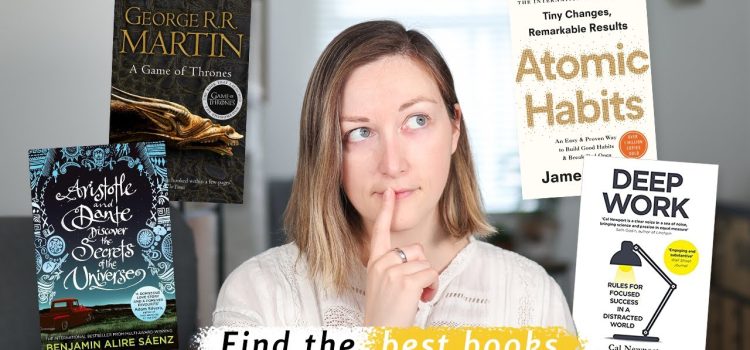
Introduction
Nothing beats the thrill of discovering a book that truly resonates—one that pulls you in from page one and won’t let go. Yet with millions of titles out there, finding your next favorite book can feel overwhelming. Whether you’re craving a gripping thriller, a heartwarming romance, or a mind-expanding nonfiction, expert strategies can streamline your search. In this guide, you’ll learn expert tips for finding engaging books: how to identify your taste, leverage review sites, join reading communities, and experiment with genres. Get ready to fill your TBR (to-be-read) list with books you’ll love.
Your Next Favorite Book Expert Tips for Finding Engaging

1. Clarify Your Reading Preferences
Before you search for new titles, know what you enjoy:
- Reflect on Past Hits: List the last five books you loved. Note common themes, pace, and tone.
- Identify Your Mood: Do you prefer light, uplifting reads or dark, complex narratives?
- Balance Fiction and Nonfiction: Decide if you want escape or learning.
- Set Length and Format Goals: Some readers favor short novellas or graphic novels, while others dive into epic tomes.
By understanding your core preferences, you can quickly eliminate mismatches and focus on likely winners.
2. Leverage Online Book Recommendation Tools
Several websites and apps use algorithms and user data to suggest reads:
- Goodreads: Input books you’ve enjoyed to get custom recommendations and see lists curated by genre or mood.
- BookBub: Sign up for daily deals matched to your interests—ideal for discovering bestsellers at a discount.
- What Should I Read Next?: Type in a known favorite and receive a list of similar titles.
- Literature-Map: Visualizes authors related to your favorites, helping you broaden your horizons.
These tools save time by narrowing choices based on data, not guesswork.
3. Tap into Reading Communities
Engaging with fellow book lovers often leads to unexpected finds:
- Book Clubs: Local libraries and independent bookstores host monthly gatherings—join one to get member picks.
- Online Forums: Reddit’s r/books, LibraryThing, and Facebook groups let you ask for personalized suggestions.
- Instagram & TikTok (BookTok): Influencers share bite-sized reviews and trending titles in #BookTok and #Bookstagram posts.
- Meetup Groups: Seek genre-specific groups, from sci-fi geeks to historical fiction buffs.
Real-time discussions and passionate readers introduce you to gems you might never encounter alone.
4. Explore Curated Book Lists
Editors and experts often publish themed lists, perfect for targeted exploration:
- Best-of-Year Roundups: Major publications like The New York Times and The Guardian release annual “Top 10” lists.
- Genre Guides: Websites like Tor.com (fantasy/sci-fi) or CrimeReads (mystery/thriller) underline standout new releases.
- Award Winners: The Booker Prize, Hugo Awards, and Pulitzer finalists signal high-quality writing.
- Reading Challenges: Platforms like Goodreads’ yearly challenge or Modern Mrs. Darcy’s Reading Challenge offer monthly themes to push your boundaries.
Curated lists act as quality filters, ensuring a base level of acclaim or expert approval.
5. Sample Before You Commit
Don’t buy or borrow the whole book without a taste test:
- Read Excerpts: Amazon, Google Books, and many publisher websites let you preview the first chapter or two.
- Public Library E-Collections: Apps like Libby and Hoopla allow you to borrow e-books without leaving home—cancel if it’s not a match.
- Bookstore Browsing: Visit your local store, settle into a cozy corner, and read pages to gauge writing style and hook.
Trying samples keeps you from investing time in a book that doesn’t click with your preferences.
6. Rotate Through Multiple Genres
Sticking to one genre can limit your reading pleasure:
- Genre Mix: Alternate between fiction and nonfiction, or pair a mystery with a memoir.
- Thematic Pairing: Read a historical novel alongside a related history book to deepen context.
- Unexpected Choices: Pick one book from a section you rarely visit—graphic novels, poetry, or short stories.
Experimentation often reveals hidden passions and keeps reading fresh.
7. Follow Author and Publisher News
Staying current with authors and imprints helps you catch new releases:
- Author Newsletters: Sign up for email list announcements about upcoming titles, pre-order discounts, and freebies.
- Publisher Catalogs: Subscribe to newsletters from your favorite house—Penguin Random House, HarperCollins, and indie presses often spotlight debut voices.
- Social Media Follow: Track authors on Twitter or Instagram for real-time updates on their writing and book birthdays.
Being first to know means you can read new books when they’re most talked about.
8. Use Local Library and Bookstore Resources
Don’t overlook in-person expertise:
- Librarian Recommendations: Librarians specialize in matching readers to books—ask for “staff picks” displays or personal suggestions.
- Bookseller Advice: Indie bookstore employees live and breathe books; they often know niche titles and under-the-radar authors.
- Library Reading Programs: Summer reading initiatives and themed events provide both lists and community enthusiasm.
- Advance Reader Copies (ARCs): Some libraries give access to pre-release editions—an exclusive in on new titles.
These local resources combine professional insight with community spirit for personalized recommendations.
9. Track Your Reads and Adjust
Keeping a reading log helps refine your taste:
- Use a Reading Journal: Note what you liked or disliked about each book—characters, pacing, setting.
- Rate and Review: Even brief star ratings help algorithms tailor future suggestions.
- Reflect Quarterly: Review your log every few months to spot new patterns in your preferences.
- Set Goals: Aim for a certain number of books per year or explore specific authors or regions.
This reflective practice sharpens your instincts and makes future choices quicker.
Conclusion
Finding your next favorite book doesn’t have to be daunting. By clarifying your reading preferences, tapping into online recommendation tools, and engaging with reading communities, you can discover titles that truly captivate you. Explore curated lists, sample before you commit, and rotate among genres to keep your reading life vibrant. Leverage local librarians, booksellers, and library programs for personalized guidance, and stay informed about new releases through author newsletters and publisher catalogs. Finally, track your reads in a journal to refine your taste over time. With these expert tips for finding engaging books, you’ll build a TBR list full of page-turners—and never face a reading slump again.








